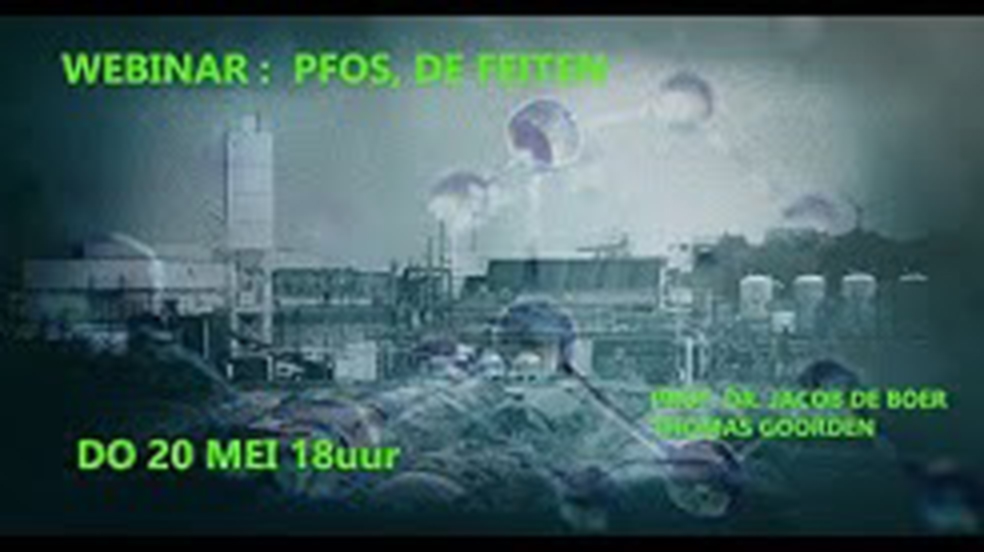12.02.2025 | Grondrecht
PFAS zijn overal, maar nergens zo geconcentreerd als in onze regio. Ze vervuilen lucht, water en bodem en stapelen zich permanent op in ons lichaam. Dat ze een gevaar vormen voor onze gezondheid en milieu staat vast, maar toch worden ze nog volop gebruikt in consumentenproducten en industrie. Elke dag zonder verbod, maakt de de oplossingen zwaarder en duurder. 39 mutualiteiten, milieuorganisaties en burgerverenigingen vragen daarom de overheid: grijp vandaag in, en voorkom verdere schade.
Sinds het eind van de jaren ‘40 heeft het gebruik van PFAS in verschillende industriële toepassingen en consumentenproducten geleid tot grootschalige vervuiling. Het Forever Pollution Project stelde bij wel 23.000 plekken in Europa PFAS-vervuiling vast – en geen enkele regio heeft zo’n hoge vervuilingswaarden als België. Maar naast deze hoge omgevingsblootstelling, dragen ook PFAS-houdende consumentenproducten, voedselverpakkingen, en verontreinigd drinkwater en voeding bij aan een hogere blootstelling. Een recente Europese biomonitoringstudie trof bij elk onderzocht individu PFAS in het bloed aan.
Wetenschappers waarschuwen al jaren voor de gevaren van deze ‘forever chemicals’. PFAS verstoren het immuunsysteem en de hormoonhuishouding, schaden de lever en schildklier, en worden in verband gebracht met een verhoogde kans op kanker en andere ernstige ziekten. Onderzoek brengt steeds meer risico’s aan het licht. Het is daarom cruciaal om onze volksgezondheid op de eerste plaats te zetten.
Zolang we het gebruik en de verspreiding van PFAS geen halt toeroepen, blijven de kosten voor volksgezondheid en de sanering van ons leefmilieu verder oplopen. Naar schatting leidt de blootstelling aan PFAS in Europa jaarlijks tot gezondheidskosten van 52 tot 84 miljard euro. Recent maakte het Forever Lobbying Project voor het eerst bekend wat het kost om Europa te saneren: 2 biljoen euro voor de komende 20 jaar, of 100 miljard euro per jaar. Alleen de PFAS-kraan dichtdraaien, kan verdere meerkosten voor mens en milieu voorkomen.
PFAS is een groep van meer dan 10.000 stoffen. Toch zijn er op mondiaal niveau slechts enkele onderworpen aan regelgeving. Het voorstel voor een Europees verbod op PFAS, dat vijf Europese landen twee jaar geleden bij ECHA indienden, biedt een uitweg. Maar dit proces heeft al veel vertraging opgelopen, en het is onduidelijk wanneer het voorstel wetgeving zou worden. Het Forever Lobbying Project onthulde hoe de PFAS-industrie via een massale lobby- en desinformatiecampagne het voorstel tracht te ondermijnen. Bovendien zouden door de lange overgangstermijnen de restricties waarschijnlijk pas ten vroegste in 2029 van toepassing zijn. Meer dan ooit is het belangrijk dat België zich blijft uitspreken voor een Europees verbod op PFAS. Nu het risico bestaat dat de nieuwe Europese Commissie industriële belangen boven volksgezondheid plaatst, roepen wij op om erover te waken dat ze de gezondheid van mens en milieu centraal zet in haar PFAS-beleid.
België hoeft bovendien niet te wachten op een Europees verbod, maar kan vandaag actie ondernemen om haar burgers te beschermen. Veilige alternatieven voor PFAS in consumentenproducten zijn al beschikbaar. Een effectief substitutie- en uitfaseringsplan kan innovatie stimuleren en de uitfasering van PFAS versnellen. Bedrijven die deze veilige alternatieven ontwikkelen en op de markt brengen moeten daarvoor de nodige steun van de overheid krijgen. Tegelijk moeten vervuilers verantwoordelijk worden gehouden. Het principe dat de vervuiler betaalt, moet de leidraad vormen voor de oprichting van een sectorfonds om de kosten van sanering te dekken.
Na de PFAS-crisis in 2021 heeft Vlaanderen belangrijke stappen gezet voor een doeltreffend PFAS-beleid. Het is nu essentieel dat het PFAS-actieplan en de visie voor Zorgwekkende Stoffen zo spoedig mogelijk worden uitgerold tot een volwaardig beleidsplan dat de gezondheid van mens en milieu centraal stelt. De aanpak van de hotspots van vervuiling, het voorkomen van de verdere verspreiding van PFAS en de bescherming van de getroffen gemeenschappen zijn eveneens cruciaal. Daarnaast moet Vlaanderen blijven werken aan de lijst met zorgwekkende stoffen die tegen 2030 prioritair uitgefaseerd worden.
Vanwege de omvang van de PFAS-crisis is samenwerking tussen de verschillende gewesten absoluut noodzakelijk. Dat Vlaanderen, Wallonië en het Brussels Hoofdstedelijk Gewest bijvoorbeeld sterk uiteenlopende normen voor TFA in drinkwater zouden hanteren, is absurd. Structurele samenwerking, onder de vorm van een federaal actieplan voor PFAS, moet hieraan een einde maken en één kader vestigen.
We verdienen een veilige leefomgeving. De overheid draagt de belangrijke verantwoordelijkheid om de volksgezondheid en de kwaliteit van ons leefmilieu te beschermen. We dringen erop aan om te blijven pleiten voor een verbod op PFAS op Europees niveau én tegelijk werk te maken van een nationaal substitutie- en uitfaseringsplan voor PFAS in consumentenproducten. Vandaag de PFAS-kraan dichtdraaien, is de enige verantwoorde beslissing voor de komende jaren.
Bron:



